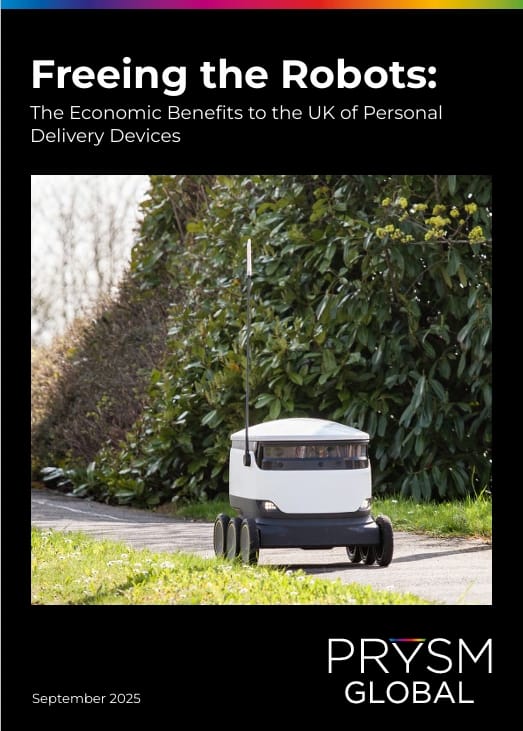The country is united: we all want more economic growth. But how do you achieve it? Tax and spending play a big role, but the limits to both has led to a consensus that much of the solution is de-regulation. The Chancellor Rachel Reeves wrote to all the regulators, pushing them to do less regulation.
I have the scars to show that deregulation is a lot easier said than done. I chaired the last Government’s Regulatory Policy Committee – an evolution of Tony Blair’s original Red Tape initiative – and the challenge is that all regulations have been put in place for a reason. Every regulation someone proposes to get rid of, there is a counter argument about why it should be kept, from protecting consumers to preserving the environment. It takes political bravery to accept the risks of scrapping something.
But at heart there is a fundamental problem in how Government – from the civil service to regulators – assess risk in the UK. They investigate all the possible harms of allowing an activity, but not of the costs of effectively banning it by smothering it in red tape. In the end, you end up with stability of the graveyard. The assessments will show that nothing bad will happen, but they will not take into account that nothing happening can itself be damaging.
Civil servants have to produce impact assessments looking at costs and benefits of policy changes – it was my job to uphold the quality of them across Government – but they are almost entirely used to justify decisions that have already been made.
Let me give you some concrete examples of this very British malaise. I was the minister of the future of transport, and we wanted to champion innovation. But one innovative company complained to me that to do a tethered test flight in a remote area where there was no risk to any public still required thousands of pages of documentation and hundreds of thousands of pounds to get full test flight approval from the Civil Aviation Authority. By contrast, in the US, the Federal Aviation Authority says that if there is no risk to the public, then a company can take responsibility for their own risk. Guess where the industry is making most rapid progress?
We are the only country in Europe where e-scooters are effectively banned (outside a few trials) because we are very good at thinking of reasons not to use them. Self-driving vehicle companies that once thought they would do pilots in the UK, are now switching them do doing them overseas, such as in Japan, because it is too difficult to do in the UK.
British food companies have been effectively banned from importing food samples into the UK, even just for internal research purposes. British companies cannot import food openly on sale across the US or Australia or Japan – even packaged ready meals – so that their researchers in their own laboratories in the UK can investigate them. Yes, we need laws to protect biosecurity, but these laws are not proportionate, or even rational. Banned from importing samples, British food companies are instead exporting their R&D to overseas locations.
Challenger banks want to grow to compete with big banks, but the rules on capital effectively put a barrier on them growing above a certain size (the regulators are finally moving on this). The Financial Conduct Authority put such strong restrictions on financial advice to stop abuses, that most of the population no longer get access to advice that would help them.
Across the economy, this hyper risk-averse approach is throttling growth. As a transport minister responsible for vehicle standards, I used to muse at what the official response would be now if someone suggested introducing cars, a product that causes around 2,000 deaths a year. Our policy makers would spend many years thinking and consulting on a thousand ways to reduce the risk of cars, which would make them incredibly safe but impossible to use. We would have no deaths on the road, but also no cars.
Innovation and growth in the UK is moving steadily to countries with less restrictions. These countries are not the lawless Wild West, but responsible countries such as Germany, Japan, Singapore and the US, that have not succumbed to such hyper risk-aversion.
There is a solution to all this. It is to make sure that policy-makers focus less exclusively on stopping all potentially bad things happening, and more on the cost of effectively banning something, and putting the burden of proof on them to show that their restrictions are proportionate. A good place to start is looking at what other countries do – if Finland can allow personal delivery robots, why don’t we copy from them? Rather than effectively banning British food companies from importing all samples, policy makers should start from the assumption that they want to make it as easy as possible for food companies to do research, and only introduce restrictions where there is a clear risk to biosecurity. Let flight innovators do test flights in remote areas where there is no risk to the public, without going through the approval of a commercial launch.
We have got the balance wrong in the UK. If we want growth, policy makers need to stop focussing solely on stopping all bad things happening, and more on the bad consequences of nothing happening.
Anthony Browne is a former transport minister and founding partner of Prysm-Global


